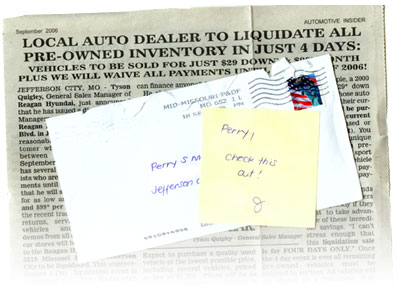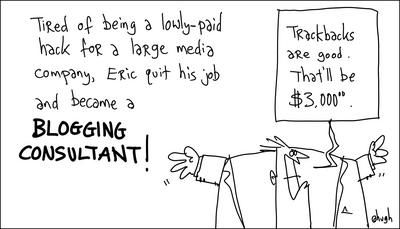Iowa Senator Tom Harkin talked, by phone, with a group of Iowa radio reporters on Thursday morning. One of the reporters asked the Senator for his reaction to Venezuelan president Hugo Chavez’s comments about President Bush at the UN. One of our reporters was on that conference call and posted a story about the senator’s response to our website, RadioIowa.com. (“Harkin defends Venezuelan President’s UN speech against Bush”)
Radio Iowa News Director Kay Henderson blogged the entire story but the short version is The Drudge Report linked to the story…a shit storm rained down on Senator Harkin…his people try to get Kay to change the headline of our story on the web… a long, stressful day for everyone.
This is just one more small example of how the web has changed things. The stations the other radio reporters (on the conference call) work for probably all have websites but I don’t think they post news stories. So, in all likelihood, our little story was the only one online, at least initially.
BTW (Before the Web), one or all of those reporters might have aired the story on a couple of newscasts and people in Des Moines or Sioux City might have been pissed at the senator. And even if the wire services picked it up, it would have taken a little time to ripple out, and the reaction would have been diluted.
It’s now Saturday morning and I googled “Tom Harkin.” The top search result is: “Hearing Is Believing” on what appears to be a blog called Power Line.
“Harkin must have taken some heat for his comments on the radio, because he put a completely different statement on his web site, after the fact. To see what he really thinks, listen to the audio below.”
Power Line didn’t bother to link to our story or mention our network by name. And they stole our audio and posted the MP3 file to their site. But no matter. You get the idea.
Media was once an orderly thing:
Local radio station(s) – Local newspaper
Handful of larger city newspapers, TV stations & radio stations
Statewide radio network
Associated Press
National media
You could manage these. If you were clever, you could spin and control them a little. No more. We’re all breathing the same media air.
If Senator Harkin does the radio reporter conference call again, I sure would like to listen in.



 I wonder if this isn’t a very positive trend for broadcasting. Could “small be the new big” here? Perhaps a locally owned and managed radio station could better serve the community than a cog in some monstrous media machine. What if you didn’t have to claw your way up through many layers of corporate org charts (and back down) to try something new? What if it really became about serving the local community and not the share price?
I wonder if this isn’t a very positive trend for broadcasting. Could “small be the new big” here? Perhaps a locally owned and managed radio station could better serve the community than a cog in some monstrous media machine. What if you didn’t have to claw your way up through many layers of corporate org charts (and back down) to try something new? What if it really became about serving the local community and not the share price?